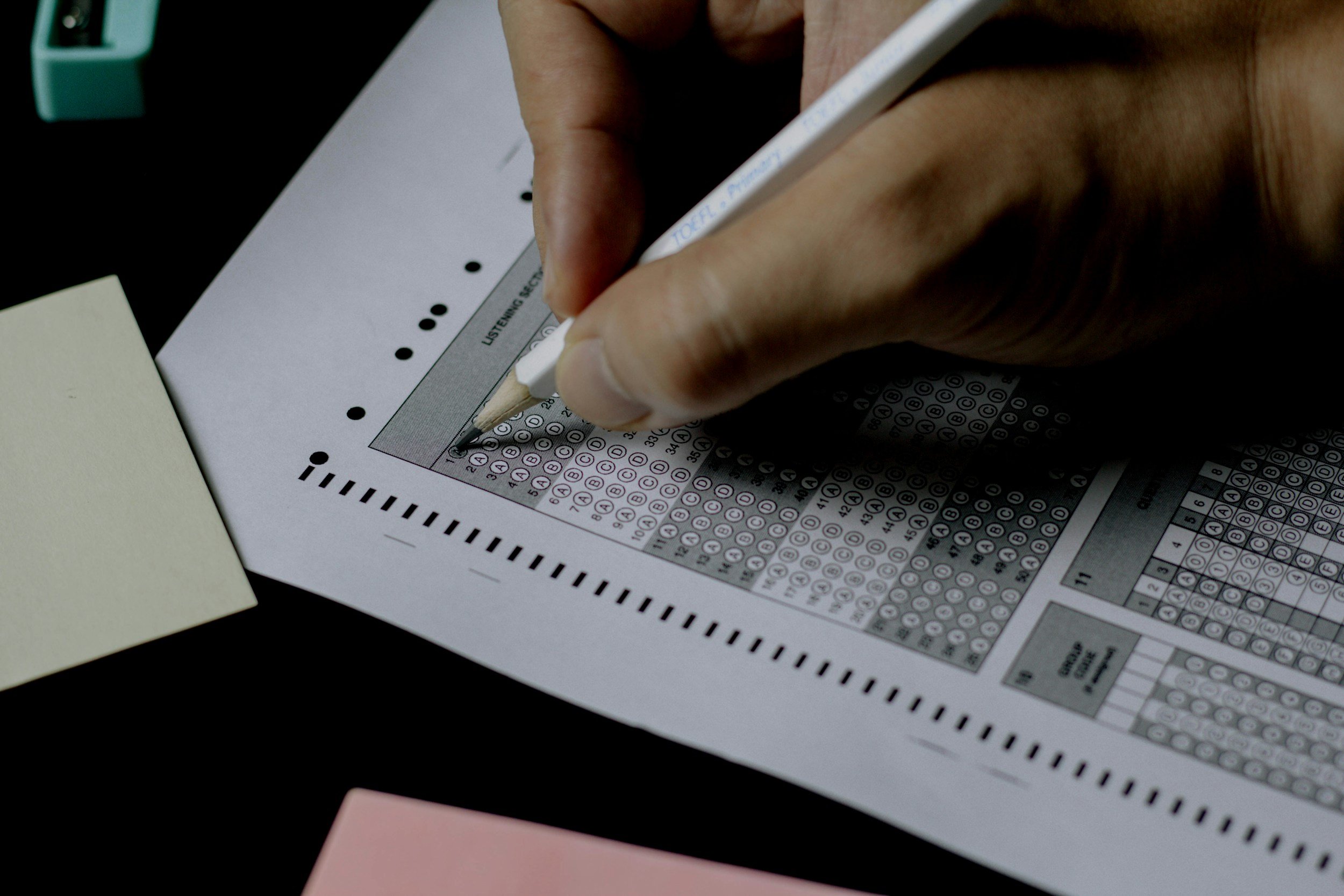
Summer Program Virtual Info Session
Learn about our summer courses in this video walkthrough or read the course descriptions below.

Test Prep
-
SSAT Standardized Test Prep
Applying to private high school? Get ready for the challenging Upper Level SSAT with this course. In our strategy class, students will learn key strategies for conquering analogies, vocabulary, and math problems. In addition, students will learn the science behind test anxiety and practice research-backed strategies to beat anxiety and enter the test feeling calm and centered. After the strategy course, students will take a mock test.
By taking our course, students will:
- Become familiar with the questions and content on the SSAT
- Receive a score estimate
- Reduce test anxiety on the real test by mimicking testing conditions in advance
- Identify which areas to study
-
SAT Math Week 1: Algebra + Problem-Solving/Data Analysis
Our SAT summer courses focus on test-taking strategies, drilling many realistic SAT questions, and understanding the math behind how to solve the trickiest problems.
I’ve grouped these topics together so that students can focus on test strategy and time-saving with Algebra and understanding new content with Problem-Solving & Data Analysis.
Algebra is the single most important topic on the SAT Math test: 35% of all SAT Math questions cover Algebra, but SAT Algebra is nothing like your school Algebra 1 or 2 class. Brush the cobwebs off your algebra skills and learn advanced time-saving strategies, shortcut equations, and Desmos calculator tricks.
Problem-Solving & Data Analysis is the category that most students struggle with the most. Statistics and probability are often either not taught or not focused on in school, which means there is a lot to learn. It’s actually my favorite math topic to dig into because understanding data is so important in the modern world.
By the end of this course, students will:
- Know shortcut equations to save time on hard-level Algebra questions
- Understand how to solve SAT statistics and probability questions
- Feel familiar with the way SAT word problems are written
- Feel more confident about SAT Math
-
SAT Math Week 2: SAT Math: Advanced Math + Geometry/Trigonometry
Fun fact: The SAT grazes along the surface of precalculus, but you don’t need to have completed precalculus yet in order to understand the class. The SAT actually does not include much precalculus at all!
The SAT category of Advanced Math covers word problems and graphs relating to quadratics, exponents, radicals, absolute value, and polynomials. It does not mean the questions are all harder: there are extremely hard Algebra questions and extremely easy Advanced Math questions. Advanced Math simply means “topics from math classes that 10th-11th graders may not have taken yet.”
Geometry/Trigonometry on the SAT focuses heavily on word problems involving area, volume, and triangles. It is not necessary to complete a full Trigonometry class in school in order to understand it, but students are expected to know SOHCAHTOA. In our class, students will learn how to effectively use the SAT formula sheet and will practice solving the most common tricky problem types.
By the end of this course, students will:
- Know Desmos tricks to quickly solve Advanced Math questions
- Know when to use the SAT formula sheet
- Turn Geometry word problems into simple equations
- Know multiple ways to solve Trigonometry questions
- Gain confidence
-
SAT Reading/Writing Week 1: Advanced Reading Strategies for Information and Ideas + Craft and Structure
Our SAT Reading/Writing courses focus on test-taking strategies, drilling many realistic SAT questions, and understanding how the test-makers think in order to solve the trickiest problems.
We will use a combination of lecture and collaborative problem-solving to explore key strategies to solve the trickiest questions on the new digital SAT Reading/Writing test. Students will work through SAT questions as a class, with lots of opportunities to explain their reasoning and ask questions.
The SAT questions classified as Information and Ideas cover these topics: command of evidence (graphs), central ideas, and the notoriously tricky inference questions. Craft and Structure questions cover these topics: words in context (vocabulary), text structure & purpose, and cross-text connections (2-text questions).
By the end of the course, students will:
- Have a toolbox of time-saving strategies
- Be able to break down what the question is really asking
- Gain familiarity with the language used on the SAT
- Know how to extract the main idea from complex paragraphs
-
SAT Reading/Writing Week 2: Advanced Grammar and Testing Strategies for Expression of Ideas + Standard English Conventions
The SAT questions classified as Expression of Ideas encompass transition words and rhetorical synthesis. Standard English Conventions questions cover grammar.
By the end of the course, students will:
- Develop a deeper understanding (and, dare I say, enjoyment?) of the nuances of grammar
- Understand subtle differences between transition words (furthermore vs. indeed, anyone?)
- Learn how to carefully pick apart answer choices to identify red flags

English Language Arts & Science
-
Week 1: How to Write High School Essays (Quickly & Easily)
Get past writer’s block and perfect your 5-paragraph essays with this class, aimed at grades 8-11 (but 12th graders are welcome if they need a refresher). Through a combination of discussion, lecture, activities, and a whole lot of writing, this class will demystify the five-paragraph essay.
By the end of the week, students will:
- Know multiple ways to structure an effective essay
- Have practiced strategies to get past writer's block
- Have written multiple types of outlines to ensure cohesive essays
-
Week 1: Brain-Based Study Skills: How the Brain Learns
Did you know that the human brain usually forgets 50% of what it learns within just 24 hours? Find out why — and how to prevent it — in this fascinating class. Dive into the psychology behind how the brain learns through discussion, games, and writing, and practice using specific study strategies that harness the brain’s natural ability to learn. Take ownership of your learning process and get ready for high school and college!
By the end of the week, students will:
- Understand cognitive psychology principles including active recall, spaced repetition, and interleaving
- Develop metacognitive skills
- Create a toolbox of brain-based study strategies to use in any class, from Algebra to Zoology
- Gain experience writing about science
-
Week 2: Literary Symbolism & Vocabulary
Did you know that Pokemon uses some of the same literary symbols as Shakespeare? Have you ever noticed how the color of a character’s clothing can match their personality? Through discussions, games, reading, and lots of writing, students will explore how and why authors use symbols.
By the end of the week, students will:
- Understand the 40 most common literary symbols
- Write essays analyzing literary symbols
- Learn important vocabulary common in literature
Recommended prerequisite: It is recommended that any students in 8th or 9th grade take ELA: How to Write High School Essays (Quickly and Easily) first.
-
Week 2: Ethics and Ideas in AI
Perspective 1: Teens all over the world are using artificial intelligence to cheat on their homework.
Perspective 2: Teens all over the world are using artificial intelligence to teach themselves in more in-depth, interesting ways than schools can.
Who is right? Can both be true?
When it comes to AI, there are a million questions and no clear answers. Through interactive discussion, reading, and writing, students will explore the ethics of AI with a particular focus on areas that interest teens. How can students ethically use AI? Should teachers use AI to grade papers? To what degree is it fair to use AI in the essay process, and what does “fair” even mean?
By the end of the week, students will:
- Analyze and debate real-world ethical questions about AI in society
- Develop research-based writing skills by crafting arguments on AI-related issues
- Consider the future of AI and its impact on everyday life for teens
P.S. I used AI to write one section of this course description. Can you figure out which part?
-
Virtual: Introduction to Coding
Have fun learning to code while creating your own games, art, and more in this engaging class. The course will be taught by some of the top students at the prestigious University of Chicago. This course is modular, and we will have a different activity each day.
By the end of the course, students will:
- Create their own games and digital art
- Practice using multiple coding languages
- Gain confidence in computer science
- Get excited about what they can code next!

College Application Essays
-
Avoiding the Top 10 College Essay Mistakes
How can you make sure your Common App personal statement is memorable–in a good way? Whether you’ve finished your first draft or you’re not sure where to start, this lecture and discussion-based course will help you write a great essay. As we discuss each common mistake, we will dive into multiple options of what to do instead.
By the end of the course, students will:
- Learn how to avoid mistakes while writing the Common App personal statement
- Know how to use details and “showing, not telling”
- Be equipped to find and fix mistakes in their college application essays
-
College Essay Workshop: Personal Statement
Are you feeling the pressure of college essays? Do you stare at a blank page, wondering how to beat writer’s block? Fear not! In this class, you will learn the skills needed to write compelling essays and make your personal statement stand out.
This workshop will guide you through highly effective brainstorming exercises. By understanding yourself better through writing, discussion, and 1:1 guidance, you will leave with a draft that tells colleges your authentic story.
By the end of the course, students will:
- Read and analyze exemplary essays
- Complete brainstorming and speed-writing exercises
- Select a topic for their personal statement
- Complete a draft of their essay
-
College Essay Workshop: Supplementals
Prerequisite: Open to rising 12th graders only. Students must have a college list. Please note: Many state colleges do not require supplemental essays.
With top colleges’ admission rates hovering between 3% and 5%, and more and more students jostling for the same spots, it is more important than ever to demonstrate interest and fit. Colleges want to protect their yield: if they accept you, they want you to pick them.
Enter: the supplemental essays. A great supplemental essay not only shows that college that you are a great fit, both academically and socially; it also shows that you want to attend their college so much that you put a lot of time and effort in.
Through group discussion, writing, and 1:1 guidance, students will write 1-2 supplemental essays in this workshop. Those essays can then be turned into templates for future essays, as many colleges ask similar questions.
By the end of this course, students will:
- Read and analyze exemplary supplemental essays
- Research their top college(s) effectively
- Write essay drafts that connect their unique interests with their top college’s unique offerings
- Leave with high-quality essays that can serve as templates for other college applications

